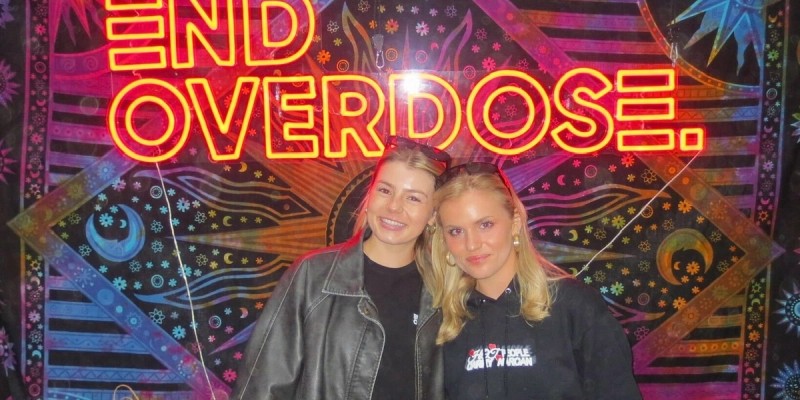It’s not always easy to talk about drug use, especially with people we love. Whether it’s a friend getting ready for a night out, a sibling or child experimenting, or a classmate/co-worker casually using pills, speaking up about drug safety can feel awkward, heavy, or even confrontational.
But here’s the thing: these conversations can save lives.
At End Overdose, we believe that overdose prevention starts with compassion, not criticism. We are neither for or against drug use. We are for safety and overdose prevention and response. You don’t need to scare someone into being careful– you just need to meet them where they are.
Here’s how you can talk about drug safety without sounding judgmental:
1. Lead With Love, Not Fear
Start the conversation from a place of care and concern. You’re not trying to “fix” them or tell them what to do– you just want them to stay safe.
Instead of: “You need to stop messing around with that stuff. You’re being stupid.”
Try: “Hey, I care about you and just want to make sure you’re safe with everything going on.”
2. Share, Don’t Shame
It’s okay to offer information, but avoid sounding like you’re lecturing. Think of it as sharing a tip, not issuing a warning.
Instead of: “You realize you could die from that, right?”
Try: “Did you know that a lot of stuff lately has been cut with fentanyl? I started carrying test strips just in case.”
3. Offer Tools, Not Ultimatums
Don’t give them an “all or nothing” approach. Overdose prevention is about small steps toward safety, not forcing change overnight.
Try saying:
“No pressure at all, but I have Narcan if you ever want it.”
“I just ordered extra test strips– let me know if you ever want a few.”
Even just offering these tools plants a seed.
4. Normalize the Conversation
Make drug safety part of regular conversations, not just something you bring up in crisis. The more casual you are, the easier it is to receive.
You could say:
“I’ve started carrying Narcan in my bag– it’s kind of like a first-aid kit now.” “Some of my friends test their stuff before going out. It’s just smart these days since you never know what you’re taking.”
This shows that safety isn't weird– it's just part of being prepared.
5. Listen First, Then Speak
Sometimes, people just need to be heard. If someone opens up about using, resist the urge to jump straight into advice. It can take a lot for someone to open up in the first place. Don't make it be their last. Ask questions. Stay curious.
Say:
“How do you usually make sure you’re safe when you go out?”
“Have you ever used test strips before? What’s that been like?”
When people feel respected, they’re more open to hearing what you have to say.
6. Keep Showing Up
Even if someone brushes you off, don’t give up. These conversations matter, even when they seem small. You might not change someone’s mind today, but you might be the reason they carry Narcan next week, or test their pills next month.
Final Thought: Be the Person You’d Want Around in a Crisis
Talking about drug safety doesn’t require a medical degree or special training. It just takes empathy, patience, and the courage to care out loud.
You don’t have to be perfect—just present.
Interested in learning more or getting tools like test strips and Narcan?
Check out End Overdose for free resources, trainings, and ways to get involved.
Together, we can make safety normal—and make sure no one feels alone.
